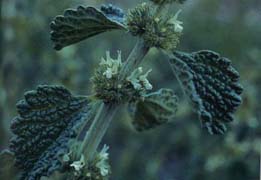User Login |
More amazing facts about composting· “Composting is, in broadest terms, the biological reduction of organic wastes to humus (Pg. 1).” · Humus is decayed plant life in its final form. It is rich in nutrients and organic matter. It is perfect soil. · The oldest existing writings on compost were found on clay tablets from Mesopotamia one thousand years before the birth of Moses. · In North America composting was used by native peoples long before the Europeans arrived. · By the middle of the 19th century composting was used by most of the Yankee settlers. · In the past, composting methods consisted of manure, plants and white fish. · Generally speaking new land does not need to be composted, but once it has produced successful crops and the nutrients have been used up composting is then a necessary step in fertilizing the land. · It has been found that the best compost consists of three times as much plant matter as manure. · The Indore method of composting is when organic materials are layered in a sandwich fashion and mixed by earthworms or turned by human hands during decomposition. · “Composting has been a basis of the organic method of gardening and farming since the days of Sir Albert Howard, father of the organic method (Pg. 7).” · Today, the organic method of gardening and composting is as popular as it had been before the turn of the last century. · Composting is much more than a fertilizer or soil conditioner. It is a symbol of the continuation of life. · When composting the need for chemical fertilizers are greatly reduced. · Compost builds high-quality soil structure. · Good soil structure allows the plants and their roots to breath. · Soil that has had the benefit of compost holds more moisture. · Compost helps to build a strong soil structure that in turn can resist erosion. · Composting keeps the soil aerated which is crucial to the soils health · Compost carries nutrients to soil and plant life · Humus holds many nutrients that are readily available to plants. · Compost can help neutralize soil toxins. · Chemical fertilizers are not a substitute to organic matter produced by composting. · “The two most important aspects of a compost pile are the chemical makeup of its components and the population of organisms in it (Pg.29).”
The book that I have used to create these notes is, The Rodale Book of Composting 1992
Catherine and Meghan
categories [ Compost | Learning and Discoveries ]
login or register to post comments | printer friendly version
|
